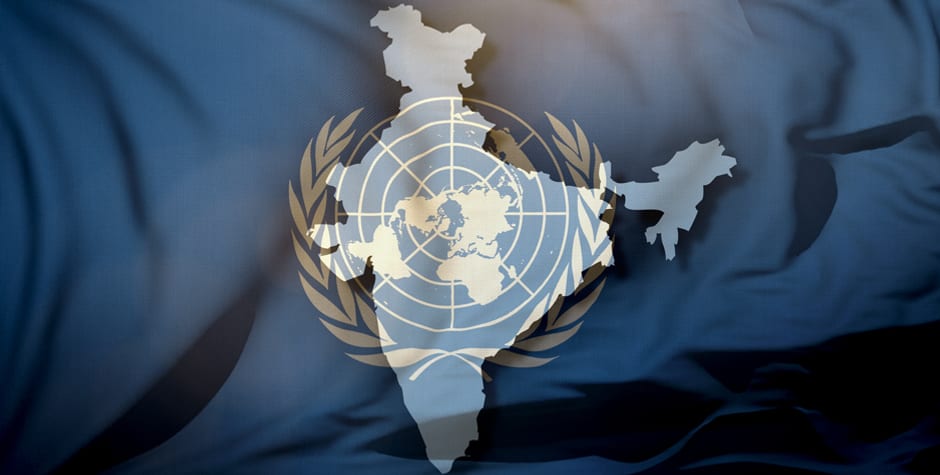India Increases Persecution of Christians—ACLJ Warns the U.N. in New Filing
India is currently ranked as the eleventh worst country for Christians. In India, Christian churches are attacked and demolished, worship services disrupted, Bibles confiscated, and pastors and members of congregations are beaten and arrested on a regular basis under false accusations of forced conversions.
Approximately 1,198 instances of Christian persecution in India were recorded in 2022, a 157% increase from 2021. According to one report, over 50 pastors and Christians are languishing in prisons in Uttar Pradesh. In just the last few months, over 200 churches were shut down. In at least 350 cases, Christians were arrested on false conversion charges. International organizations have sounded an alarm that such persecution will only increase in 2023.
Despite such severe persecution, the U.S. State Department refuses to add India to the list of Countries of Particular Concern (CPC). Even the United States Commission on International Religious Freedom (USCIRF), “an independent, bipartisan U.S. federal government agency,” is “outraged” by the State Department’s decision not to add India to the CPC list, which includes Burma, China, Cuba, Eritrea, Iran, North Korea, Nicaragua, Pakistan, Russia, Saudi Arabia, Tajikistan, and Turkmenistan.
The ACLJ, however, has once again raised the issue of Christian persecution in India at the U.N.
Our submission on India noted several incidents of persecution as well.
On January 16, 2023, right wing Hindu extremists attacked and assaulted a group of Christian teachers and students (twenty-four men and fourteen women) on an educational tour, suspecting them as missionaries on a religious conversion tour. The attackers got on the train at one station and continued to beat the Christians for over twenty minutes until they reached the next station.
Our submission further highlighted several attacks that occurred in two districts in the state of Chhattisgarh—a state with anti-conversion laws.
On January 2, 2023, a mob attacked and vandalized the Sacred Heart Church in Narayanpur district. They destroyed church property, including the crucifix. The attackers belonged to a group called “Sarva Advasi Samaj that is opposed to tribal people adopting other faiths especially Christianity and Islam.”
Just a day before, on January 1, 2023, a mob of hundreds of Hindu extremists gathered and attacked Christians in Gorra village in Chhattisgarh state and beat them with “sticks, legs, fists, bricks, and stones.”
One person recounted: “Accusing us of following a foreign religion, and leaving the tribal culture, [the attackers] gave us a choice to recant our faith or leave our homes and our village, never to return.”
Our submission further noted:
In December 2022, Hindu extremists attacked Christians in at least twenty villages in Chhattisgarh in order to force them to “re-convert” to Hinduism. . . . At least 300 Adivasi Christian families (comprising of about 1,000 individuals) were reportedly ousted from their homes in Naryanpur and Kondegoan districts. As is the case in such attacks, the police did not take any action against the attackers. The police registered a formal complaint of the attack only after about 1,000 people staged a protest.
The submission also highlighted cases of nine pastors who were arrested in November 2022 over false charges of converting Hindus to Christianity in the state of Uttar Pradesh, another state with severe persecution under its anti-conversion laws.
In addition to the cases of persecution, we informed the U.N. about the real purpose behind the anti-conversion laws.
People considered low born by the higher caste Hindus have been persecuted for millennia in the Indian sub-continent. The Hindu caste system divides people into four castes. Two groups, Dalits (formerly called untouchables) and Adivasis [tribal people] are outside the caste system. Even though India has officially outlawed discrimination based on a person’s caste, it is still very much prevalent in the country. During the British Raj and with the arrival of Christian missionaries in the Indian subcontinent, many people belonging to the lower castes and the Dalit community converted to Christianity.
As Archbishop Joseph D’souza of India has also noted, “It’s ultimately about the rights of the low caste and the untouchables.” Those belonging to the upper castes fear that becoming Christian will free lower castes from their social and political low status. As such, much of the modern-day persecution of Christians occurs through the misuse of anti-conversion laws and at the hands of the Hindu majority.
We requested the U.N. to intervene and urge India to stop encouraging this violence, abolish the anti-conversion laws, and punish the perpetrators who violently attack innocent citizens and interfere with the right to freedom of religion.
We will continue to raise a voice for our Christian brothers and sisters who cannot speak for themselves. Please continue to pray for these downtrodden minorities and wisdom for the authorities to curb the ongoing violence.
